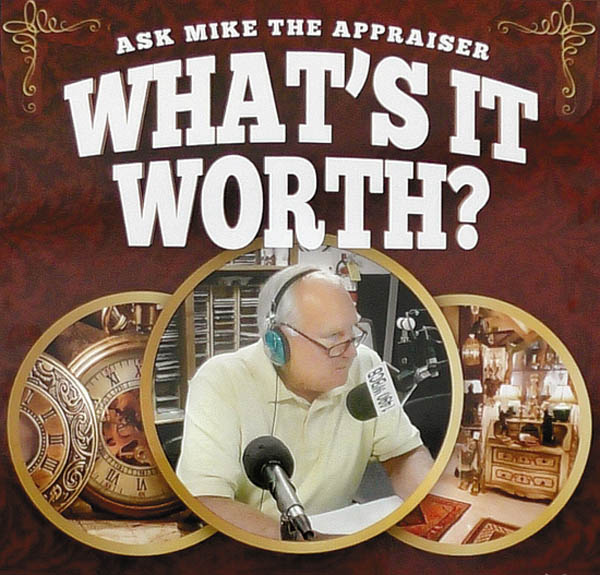Why Do Auctions Work?
“What’s It Worth” Antiques Minute
What precisely is an auction? One very basic definition would be a method of selling that unites buyers and sellers in a public gathering to help determine fair market value by selling goods in a competitive bidding situation.
Lets take a look at this definition and break it down.
A method of selling: First, auctions are a method of selling. Most have heard of the retail and wholesale methods of selling. Auctions are simply a different approach to selling real estate and personal property.
That unites buyers and sellers in a public gathering: Both retail and wholesale transactions can theoretically be accomplished with only two people--the seller and the buyer. Auctions require a minimum of three people to work effectively: the auctioneer and at least two bidders. The more bidders, the more effective the auction will be. Hence, auctions work best in a public gathering with multiple bidders.
To help determine fair market value: In both the retail and wholesale methods of selling, the seller sets the asking price, and the buyer has the option of either accepting the sellers asking price, negotiating a lower selling price, or walking away. With auctions, the bidders set fair market value by what the highest bidder is willing to pay on any given day.
By selling goods in a competitive bidding situation: In an auction, the auctioneer asks for a starting price, and once that starting price is achieved continues soliciting increasing bids from all interested bidders. The competitive bidding stops when no one else is willing to bid any higher, and the highest bidder represents the winning bidder. In theory then, the highest competitive bid represents fair market value, on that given day, for that given item, at that given location.
Whats it worth? When you bring it all together, a public gathering of buyers, competitive bidding, and fair market value are the components that make auctions work. From the days of the early Roman Empire, when auctioneers traveled with the Army and sold the spoils of war, to todays live auctions, eBay, and online bidding platforms, auctions work because of the competitive bidding process. And never forget that the number one reason people attend auctions is in pursuit of a bargain or getting something at what they think is below market value. Looking for a bargain? Then attend an auction and have some fun.
Mike Ivankovich is an auctioneer, appraiser, home downsizing expert, and host of the "What's It Worth? Ask Mike the Appraiser" radio show. Now in its fifth year, Whats It Worth airs live on Friday mornings from 9:30 to 10:30 a.m. on WBCB 1490 AM in the greater Philadelphia area. It is available on the internet at www.WBCB1490.com.
Listeners can also visit his radio show website at www.AskMikeTheAppraiser.com.
To contact Mike Ivankovich, call 215-264-4304.






